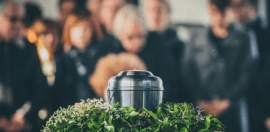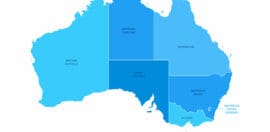Poor working Aussies feel uncomfortable seeking charity help

14 August 2020 at 5:27 pm
Many low-income Australians say they would be too ashamed, awkward, or embarrassed to go to a charity
Charities are being urged to better promote themselves as a service available for everyone in need, after research found many vulnerable people were reluctant to turn to NGOs for support.
A report launched by the South Australian Council of Social Service (SACOSS) on Wednesday said around 250,000 Australian households – whose main source of income is wages and salaries – live below the poverty line and struggle to pay their telecommunications bills.
Many of these “waged poor” households not only found it hard to pay their bills, but also faced additional expenses when required to use their personal phone and internet services for work.
Despite these issues, a national survey of 500 waged poor households found while 46 per cent of respondents would approach a service provider if they could not pay their bills, only 7.2 per cent would go to a charity or NGO for help.
Previous ABS data has also shown that less than 1 per cent of waged poor households access support from NGO welfare organisations, compared with around 15 per cent of other households below the poverty line.
The report said this could be partly attributed to a lack of knowledge about where to go and what services were available.
“[NGOs’] current outreach and referral models are not reaching waged poor households, and better advertising of their services may be constrained by funding arrangements and capacity. But it is not simply about knowledge and advertising,” the report said.
“In both the survey and interviews people said they would be too ashamed, awkward, embarrassed to go to a charity, while others said they would not because of pride or independence.”
Researchers said to overcome these cultural barriers, the challenge was not just to inform people about the services offered, but also to normalise these services so waged poor people think it is okay to seek help.
SACOSS CEO Ross Womersley told Pro Bono News one issue is that the sector does not promote itself as a universal help service, but rather uses all the traditional images of charity that may send the wrong signal to people.
The report noted that charities’ own advertising often uses marketing pitches built around “objects of pity, not ordinary people in tough times”.
Womersley said many waged poor people felt there were other people who were worse off than them who might need the support more and so were hesitant to reach out.
“What was reflected in this survey was that there were a number of [vulnerable] people who didn’t think approaching a charity was a legitimate thing to do,” Womersley said.
“We need to find ways of promoting our supports for people in a fashion that underlines the universal nature of our help, so that it’s there for everybody, not just for a particularly impoverished group of people.”
The report recommended that charities and community welfare organisations consider their promotional practices and whether they were targeted at or likely to reach waged poor households.
Womersley said if a business realised as many as 50 per cent of their potential customers did not know about their services, they would be highly concerned and “bending over backwards” to address it.
He said part of the solution involves making sure charities do not solely assess people’s needs on whether they are on income support, since this means waged poor households miss out.
“We don’t necessarily acknowledge that [waged poor households] might have the very same needs that anybody who’s on income support might have,” he said.
“Right now there’s a large number of people who potentially need assistance from [NGOs] who don’t see that the charity sector is there for them. So we’ve got a big job to do.”








